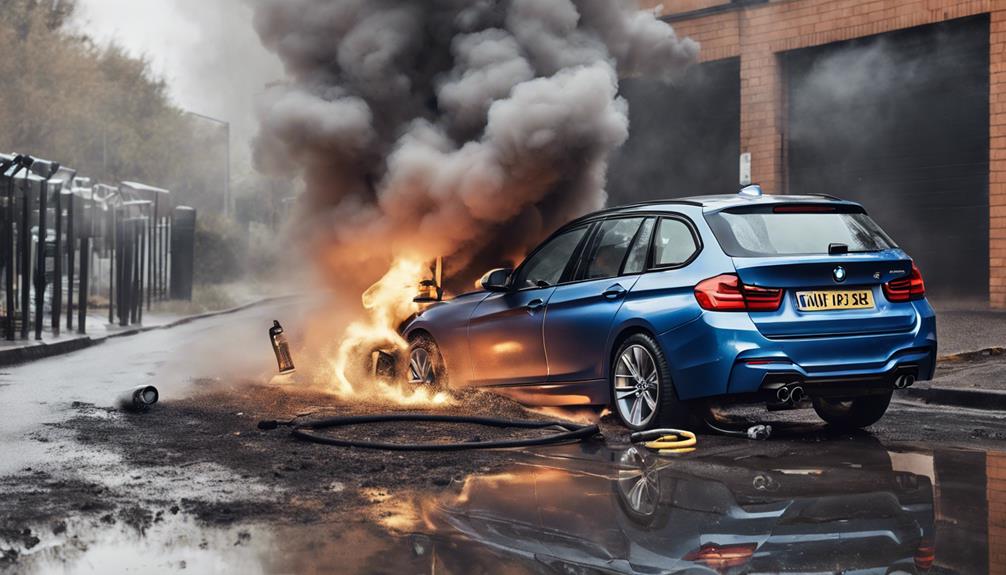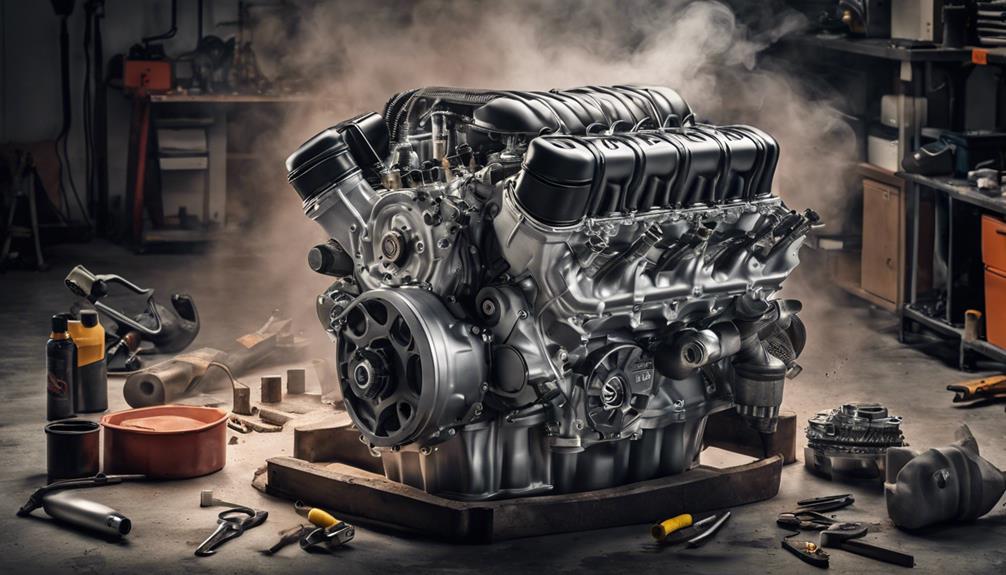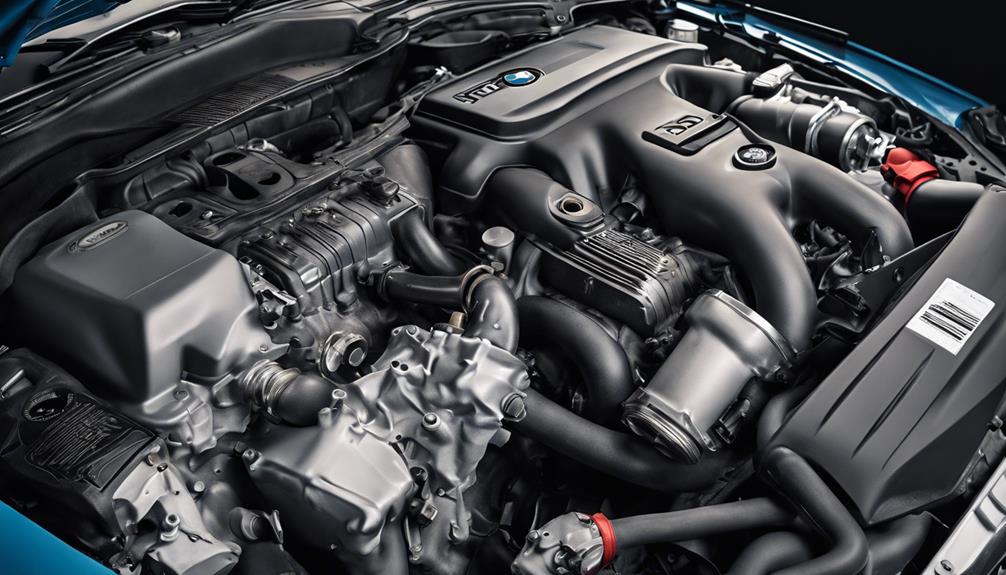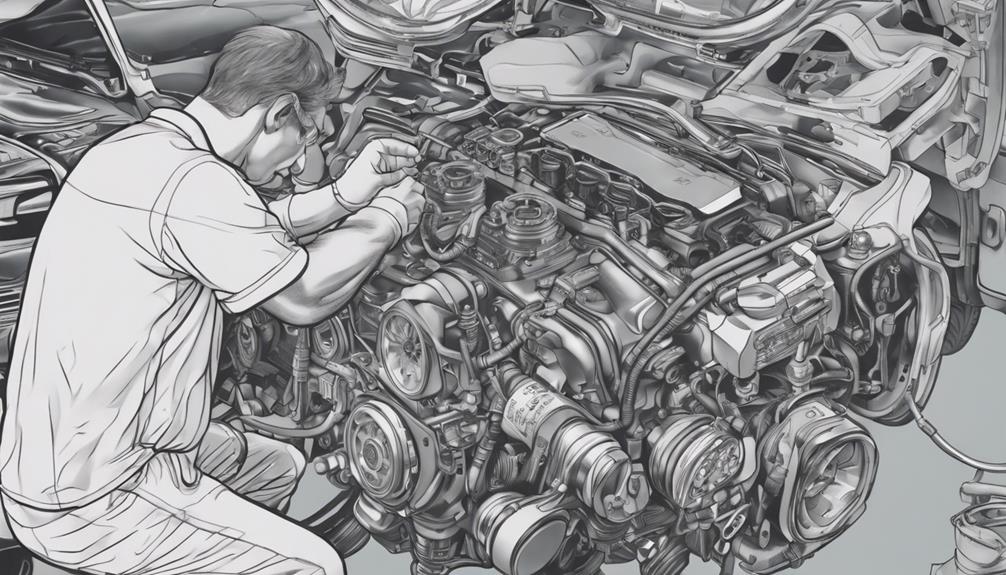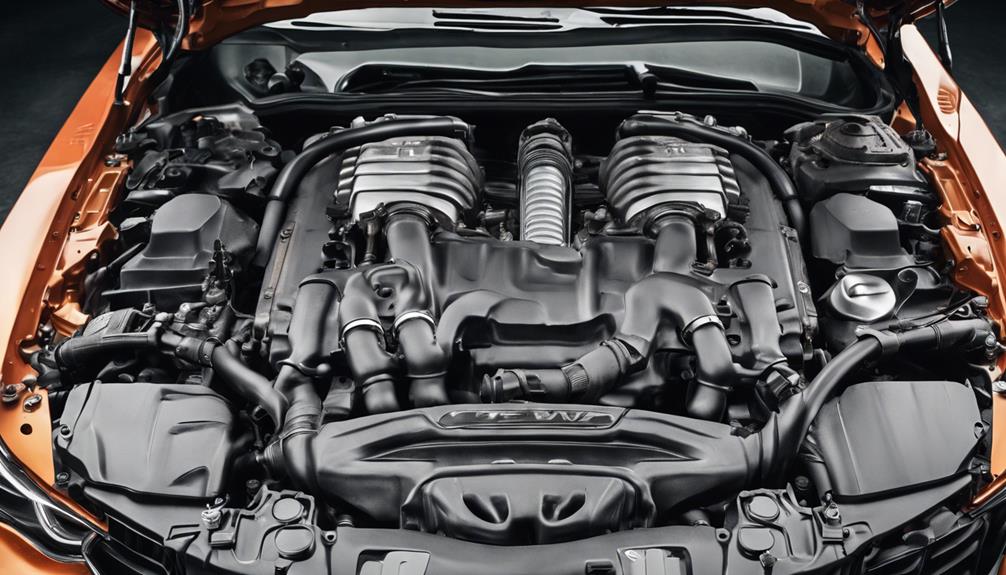If you're steering through the challenges of a BMW 318d, keep an ear out for that whining gearbox and watch for shaking during gear shifts. Don't let battery drainage and corrosion leave you stranded—remember to turn off those electrical devices! Keep a lookout for fuel pump issues and valve sensor woes, which can really put a wrench in your engine's performance. And when that DPF warning light starts flashing, it's time to take action to avoid costly repairs down the road. These common hiccups are just the tip of the iceberg when it comes to owning a BMW 318d.
Key Takeaways
- Address gearbox whining promptly to prevent further damage.
- Regularly check and maintain the battery to prevent drainage.
- Address fuel pump and valve sensor issues promptly for optimal performance.
- Detect A/C leaks early to avoid system failures.
- Immediate attention needed for DPF warning light to prevent engine damage.
Automatic Gearbox Malfunctions
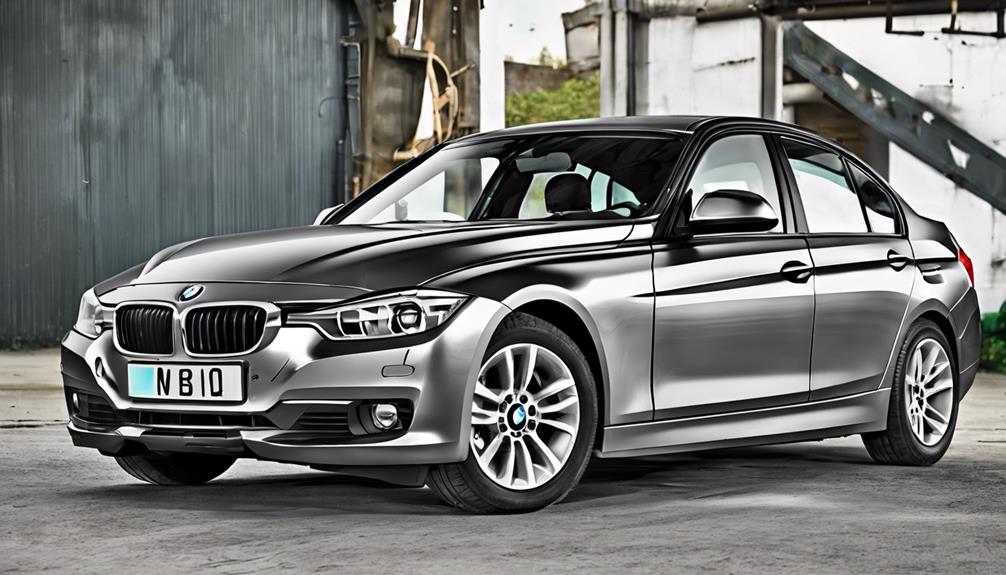
If you're noticing a whining sound that increases in pitch as you accelerate, your BMW 318d might be experiencing automatic gearbox malfunctions. This issue is a common symptom that indicates potential problems with the gearbox.
In addition to the whining sound, shaking and grinding of gears during changes can also signal issues with the automatic gearbox of your BMW 318d. If you experience increased shaking that worsens over time, it's advisable to have the gearbox inspected promptly to prevent further damage.
Regular servicing of your BMW 318d is vital to maintaining the smooth operation of the engine, timing chain, and gearbox. Addressing gearbox issues promptly can help prevent more significant problems and ensure top performance of your vehicle. By staying proactive and attentive to these symptoms, you can keep your BMW 318d running smoothly and efficiently on the road.
Battery Drainage and Corrosion
If you're finding your BMW 318d struggling with battery drainage, corroded connectors and fuse box terminals might be the sneaky culprits.
Remember, those external devices you leave plugged in could be silently munching away at your battery's power.
The alternator's job is to keep that battery charged while you're cruising, but when parked, it's all up to the battery – so watch out for those energy vampires!
Battery Drainage Causes
Corrosion of battery connectors and fuse box terminals is a common culprit behind battery drainage in BMW 318d vehicles. Here are some reasons why your BMW 318d might be experiencing battery drainage:
- Essential: Leaving devices plugged in can drain the battery, even when the car isn't in use.
- Generators: These components charge the battery while driving to keep it powered up.
- Forgetfulness: Neglecting to turn off headlights or other electrical components can contribute to battery drainage.
- Maintenance: Regular monitoring and proper maintenance of the battery are essential to prevent issues with drainage. Remember, a little care can go a long way in keeping your BMW running smoothly.
Corrosion Prevention
To prevent battery drainage and corrosion in your BMW 318d, proactive maintenance practices are essential to guarantee the longevity of your vehicle's electrical components.
Battery corrosion on connectors and fuse box terminals can lead to troublesome electrical issues. External devices draining battery power can worsen these problems.
The alternator plays a vital role in charging the battery while the car is in motion, ensuring a steady energy supply. Carelessness like leaving headlights on inadvertently can also contribute to draining your BMW 318d's battery.
Regular maintenance and inspections are paramount to prevent and address battery corrosion effectively. Stay ahead of potential issues by being mindful of these factors and taking proactive steps to preserve the health of your vehicle's electrical system.
Fuel Pump and Valve Sensor Issues
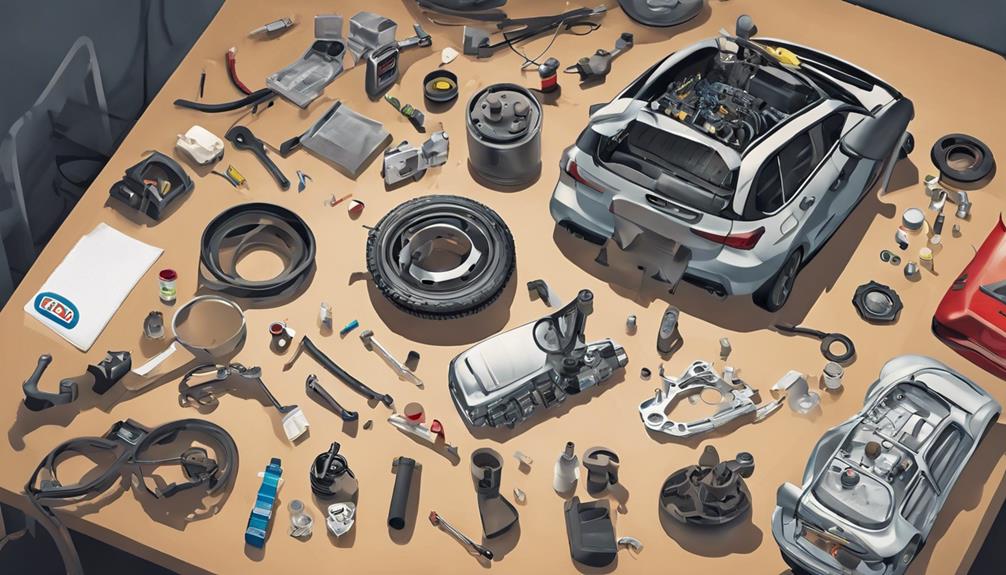
Experiencing fuel pump and valve sensor issues in your BMW 318d can greatly impact its performance and ride comfort. Here's what you need to know:
- Stalling Woes: The fuel pump problems in BMW 318d models can sometimes result in unexpected stalling, causing inconvenience and potential safety hazards on the road.
- Timing Troubles: The variable valve timing sensor clogging can lead to the engine entering limp mode, restricting its power and responsiveness, affecting your driving experience.
- Model Specific: While fuel pump issues are common in BMW 335i models from 2006 to 2007, it's important to address these concerns promptly to avoid further complications in your BMW 318d.
- Efficiency Impact: The VANOS valve timing mechanism, if contaminated with dirt, can disrupt the engine's performance and fuel efficiency, making it important to address these valve sensor issues promptly to maintain the smooth operation and performance of your vehicle.
Addressing these fuel pump and valve sensor issues promptly can help maintain the smooth operation and performance of your BMW 318d.
Air Conditioning Troubles and Failures
Exploring the intricate world of BMW 318d air conditioning, you must be vigilant for potential troubles and failures that could disrupt your comfort and driving experience. A/C leaks in the BMW 318d can be particularly tricky, leading to a loss of cooling fluid and reduced cooling efficiency. The challenge lies in detecting these leaks, as Freon evaporation can make them hard to spot. When it comes to the A/C fan, its failure in the BMW 318d can result in poor air circulation and discomfort, potentially causing immediate failure of the entire air conditioning system. In such cases, mechanics play an essential role in identifying and fixing A/C leaks, ensuring top performance of your A/C system.
| Common Issues | BMW 318d Air Conditioning |
|---|---|
| A/C Leaks | Loss of cooling fluid and reduced efficiency |
| A/C Fan | Poor air circulation and comfort issues |
| Mechanics | Necessary for identifying and fixing A/C leaks |
Dashboard Warning Lights
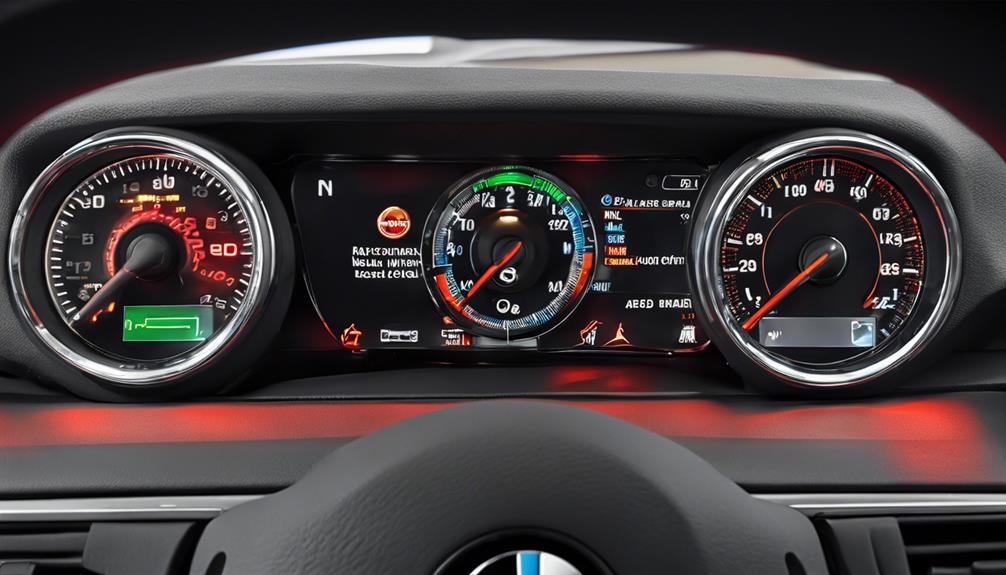
When those dashboard lights on your BMW 318d start flashing, it's like your car's way of sending you Morse code. The red lights are urgent SOS signals, the blue and green ones are like little nods of acknowledgment, and the orange and yellow lights are your car's way of saying, 'Hey, we need to talk… but it's not an emergency.'
Understanding these signals is key to keeping your BMW 318d running smoothly.
Meaning of Lights
Understanding the meanings of dashboard warning lights is crucial for maintaining your BMW 318d's peak performance and safety on the road. Here are some key points to keep in mind:
- Red dashboard warning lights require immediate attention or repair.
- Blue and green dashboard lights indicate active features or systems in your vehicle.
- Orange and yellow dashboard lights signal non-critical issues that may need addressing.
- Dashboard warning lights serve as essential indicators of your vehicle's various functions.
Common Warning Indicators
To effectively navigate the dashboard warning lights of your BMW 318d, a clear understanding of their meanings is vital for ensuring prompt attention to any critical issues. Red lights on the dashboard indicate immediate action is required, while blue and green lights signify active features or systems in operation.
Orange and yellow lights indicate non-critical issues that need monitoring. It's essential to pay attention to these indicators as they reflect your car's health and status. For instance, issues with timing chains or the crankshaft sensor can trigger specific warning lights.
Seeking professional services like Automotive Hospital can help interpret and address these dashboard warnings effectively, ensuring your BMW 3 Series stays in top condition.
Loss of Power Steering
Experiencing a loss of power steering in your BMW 318d can be a frustrating and potentially dangerous issue caused by factors like a faulty power steering pump or fluid leak. Here's what you need to know:
- Symptoms: Difficulty turning the steering wheel, whining noises, or stiff steering are common signs of power steering problems.
- Importance of Prompt Action: Addressing power steering issues promptly is vital to prevent further damage to the steering system and safeguard your safety on the road.
- Preventive Maintenance: Regular upkeep, such as checking power steering fluid levels, can help prevent power steering failures and extend the life of your steering system.
- Professional Assistance: If you experience a loss of power steering in your BMW 318d, it's advisable to seek professional diagnosis and repair to accurately identify and fix the underlying issue.
Don't let a loss of power steering steer you off course; stay proactive and address any issues swiftly to keep your BMW 318d running smoothly and safely.
DPF Warning Light
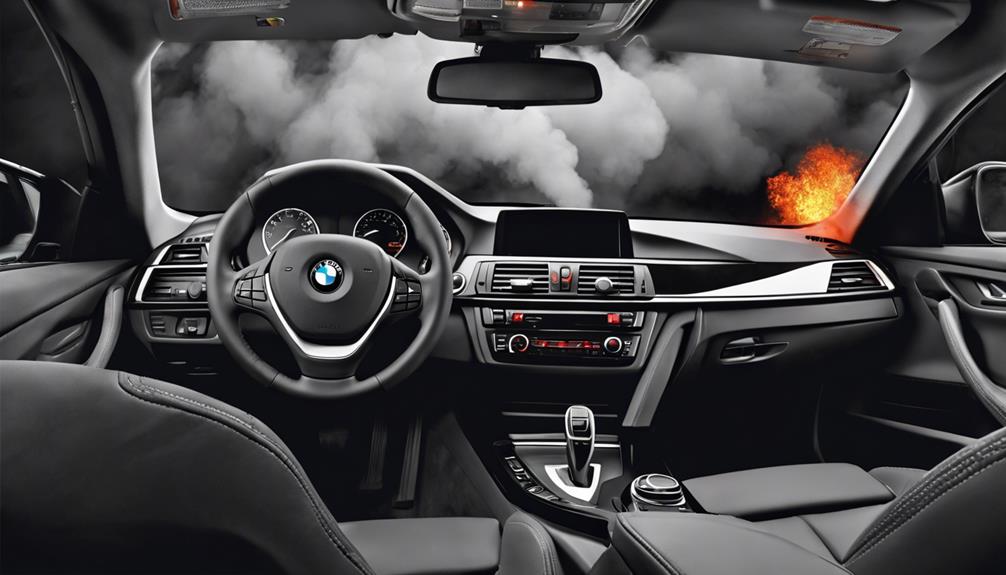
Upon observing the DPF warning light illuminate in your BMW 318d, immediate attention is essential to prevent potential engine complications and maintain peak performance. This warning indicates issues with the diesel particulate filter (DPF), essential for reducing emissions.
Ignoring the warning can lead to reduced engine performance and even damage. While regeneration cycles may assist in clearing the DPF, persistent warnings suggest deeper problems like clogged filters, faulty sensors, or poor driving habits.
Addressing the DPF warning promptly is key to preventing costly repairs and ensuring peak engine function. Remember, your BMW's performance and longevity depend on timely action when the DPF warning light appears. So, stay alert, address the issue promptly, and keep your diesel engine running smoothly.
Engine Performance Decline
Wondering why your BMW 318d's engine performance is declining? The culprit might lie in faulty crankshaft or camshaft sensors. Here's how to address the issue:
- Diagnose the Problem: Conduct diagnostic checks to pinpoint whether the crankshaft or camshaft sensors are causing the engine power decrease.
- Replace Faulty Sensors: If the sensors are indeed the cause, replacing them can efficiently restore your engine's performance.
- Cost-Effective Solutions: Luckily, there are low-cost replacement sensors available in the market, making it easier to address the performance decline without breaking the bank.
- Prevent Further Damage: Addressing sensor issues promptly not only helps improve engine power but also prevents potential further damage to your BMW 318d.
Gear Change Difficulties

If struggling with gear changes in your BMW 318d, a potential culprit could be a loose pressure plate. This issue isn't uncommon in certain BMW 318d models and can lead to frustrating gear change difficulties.
When the pressure plate is loose, it can cause disruptions in the smooth shift between gears, impacting your driving experience. To address this issue, ordering replacement bolts to secure the pressure plate is a practical solution.
By ensuring the pressure plate is properly secured, you can enjoy smoother gear changes and a more responsive driving performance. It's worth noting that some BMW 318d models have had recalls related to gear change difficulties, emphasizing the importance of addressing this issue promptly.
Taking proactive steps to secure the pressure plate can make a significant difference in how your BMW 318d performs on the road.
Frequently Asked Questions
Is BMW 318d Good?
Sure, the BMW 318d offers a sleek design and decent performance. However, potential timing chain issues and costly repairs may make it a less reliable choice compared to other mainstream manufacturers. Consider your options wisely.
What Is the Most Common Problems on a BMW 3 Series?
When it comes to BMW 3 Series, common problems include timing chain issues, reliability concerns with N47 and M47 Diesel engines, engine failures due to longlife oil changes, and costly repairs like clutch, turbo, DPF, and EGR.
What Years of the BMW 3 Series to Avoid?
Avoid BMW 3 Series from 2007-2009 due to potential timing chain and crankshaft issues. Specifically, steer clear of 2008 models for more common problems. Explore newer years post-2009 to sidestep these known troubles.
Is the BMW 3 Series Engine Reliable?
Sure, the BMW 3 Series engines are generally reliable, but keep an eye on maintenance. Regular checks by pros can catch potential issues early. Don't skip out on that, and you'll likely enjoy a smooth ride.
Conclusion
Overall, owning a BMW 318d can come with its fair share of common problems. From automatic gearbox malfunctions to battery drainage and corrosion issues, it's important to stay on top of maintenance and repairs to keep your car running smoothly.
Remember to keep an eye out for warning lights, address any power steering or DPF warning light issues promptly, and be prepared for potential engine performance declines.
Don't let these problems steer you away from enjoying the luxury and performance of your BMW 318d!





